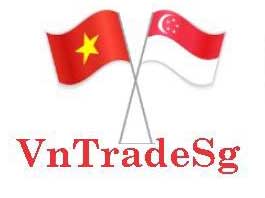In the context of the COVID-19 epidemic, e-commerce is the “escape route” for industries, including wooden furniture, helping manufacturers escape the limits of space and geographical distance, and increasing their ability to reach customers. This is also the direction that Vietnam wood processing enterprises are trying to accelerate to bring products to global consumers.
The pressure of “online”
In recent days, Vietnam’s wood exporters have becomevery worried when a series of partners in five major markets, namely the US, EU, China, Japan and South Korea, have announced their expansion of purchases, stopping buying or deferred payment.The Covid-19 epidemic is now spreading to many countries, causing extremely negative impacts on economic sectors. To prevent the spread of disease, many countries have recommended that people should not leave their homes. Furniture is not an essential consumer product, so consumption is declining.Output and interior business systems in other countries are also forced to extend delivery time. This has shown the major limitations of the traditional store chain business model because of the large operating cost, lack of dynamism and limited customer access. In Vietnam, the leading trade promotion event in the furniture industry, Vifa Expo, was also forced to reschedule due to concerns about the risk of disease spread.
Because of the current epidemic, the online sales channel is considered an “escape route” for most industries, including the furniture industry. With just an e-commerce channel, Vietnamese products can introduce products to partners and customers around the globe, instead of having to spend a lot of time and effort to reach each customer and each market.
Analyzing data of the Amazon e-commerce platform, Mr. Tran Quy Hien, co-founder of Ecomstone Vietnam Joint Stock Company, said that Amazon’s revenue is currently leading the furniture industry in the US. There are businesses selling furniture on Amazon with sales of up to USD 6 million per month, with the lowest also reaching several hundreds of thousands of dollars per month.
Mr. Shawn Xu, Vice President of Silver Sea Media Group of Singapore, also shared the problem of a business in China that used virtual reality (VR) technology so that home buyers can remotely visit every corner and detail of the house. As a result, this company sold nearly USD 10 million in just three days. Mr. Shawn Xu said that furniture retail businesses need to quickly change because the consumption trend of today’s generation is mainly online shopping.
According to Mr. Nguyen Ngoc Dung, Vice Chairman of Vietnam E-Commerce Association, currently most Vietnamese wood enterprises only process according to foreign orders, so the profit is low. If you want to escape outsourcing and get a higher surplus value, businesses need to organize the design, marketing and global distribution system – which was almost impossible in the past.
At present, with e-commerce, the presence of exchanges both B2C (businesses, companies and customers) and B2B (from businesses to businesses) are available for businesses with a distribution system cross-country. Enterprises just need to seriously invest in designing and promoting activities; they can cut intermediaries and improve the surplus value for themselves. This path does not conflict with the partners currently ordering outsourcing, because the business is based on investment and does not infringe on their own design copyrights. Only Vietnamese manufacturing enterprises have to choose, invest more effort in selling goods with their brands to get the best profits or sell goods under the names of international companies without having to participate in other stages for safety.
Step away from the “safe zone”
Recognizing the need as well as the great efficiency that online distribution can bring to the furniture industry, Hawa has recently signed with a number of partners in the fields of e-commerce and technology. Virtual reality (VR), 3D showrooms and the community of IT managers in Vietnam to accelerate the process of e-commerce and promotethe digital transformation process of timber enterprises. Specifically, the Vietnam E-Commerce Association (VECOM) will support the cooperation of Hawa’s members with E-commerce platforms such as Amazon, Wayfair, Shopify,or sales centers on e-commerce platforms. Silversea Media Group (Singapore) will introduce technological solutions and promote the potential of Vietnam’s wood processing industry, export to the globalmarket and improve the domestic market with advanced technology solutions.
E-commerce is an indispensable direction,with wood enterprises becoming more interested, because in the future, businesses will probably face many other risks in addition to the COVID-19 pandemic. Mr. Pham Nang Duy, Director of OnBrand Company – Amazon’s service provider in Vietnam – said that in the last month, the number of wood businesses connecting with OnBrand to sell products on Amazon platform has increased five-fold.
NhaXinh furniture system and some other export members of HAWA have also tested the e-commerce model, combined with virtual reality technology to introduce products to customers. This website is exactly like a booth displayed at the fair. Foreign buyers only need a computer to see all the designs that the furniture business displays and tour the factory in 3D. Through this e-commerce platform, the two sides can learn abouteach other’s designs, prices and production capacities. Foreign customers who are not or have not been to Vietnam can survey the production capacity of the factory through an independent auditor.
The transformation of digital space is faster than ever, consumer dynamics are constantly changing, epidemics are creating pressures and challenges forcing businesses to innovate and improve at all stages from design, production to commerce where digital transformation is the key.
However, experts also noted that, besides developing online sales channels, businesses must not forget the importance of offline systems, which are showrooms and workshops. The application of technology and online experience only helps to attract customers, while the decisive factor lies in the real power of the business. Typically, the world’s largest sales platform is that Amazon still holds Amazon Go – an offline store system, to serve its customers. O2O model (offline to online) – combining both traditional and online businesses is also what Vietnamese wood enterprises are aiming for.
Source: Customs News

















